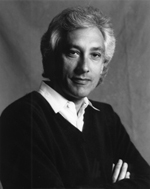Raising the Bar

In the large, inchoate expanse of critical terrain best characterized by the question of “What were they thinking?” one must relegate the newest effort, Raising the Bar, by veteran TV producer Steven Bochco (Hill Street Blues, L.A. Law, and N.Y.P.D. Blue). The bombardment of promotion on TNT—which included Bochco remarking on the dysfunction of the legal system—didn’t feature one flash of dramatic substance, and instead relied on a bevy of bellicose pronouncements and suggestive quick edits. Suffice it to say, the low expectations suggested by the pre-broadcast campaign were not improved by the initial episode. Young, telegenic lawyers, prosecutors, and public defenders spar and wrangle over various legal subtleties during the day and sit around drinking and, ultimately, fornicating at night. In the central case of the first episode, the innocent black man wrongfully accused of rape is subjected to—as we are—a most a limp, lame closing argument by slinky blonde assistant D.A. Michelle Ernhardt, who (it turns out) is sleeping with (or at least using the shower) of her adversary defense attorney, Jerry Kellerman.
At the moment, the most interesting character is clerk bailiff Charlie Sagansky, who wields Svengali-like power over the villainous Judge Judy Kessler and very well may be bisexual. So far the most noteworthy features of Raising the Bar are the scene transitions, which employ a kind of action slowdown and gradual fill-in of the scene. Considering how low the bar was set for the series debut, one is left wondering if the show was produced by hobbits.
